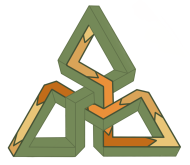The MOBA Workshop aims to explore organizational and business agility or Enterprise Agility scientifically and pragmatically. MOBA tries to find analogies and the common theoretical background for model-driven studies of organizational and business agility from various perspectives ranging from formal mathematical approaches to soft skills by which it tries to harmonize them.
The agile way of thinking and working to rapidly respond to evolving reality and reduce uncertainty through incremental development and frequent feedback dramatically changed the life cycle of modern IT systems. Although methodological principles and practical tools of agility were adopted in the practice of multiple organizations for improving their services and incremental design of better products, there are ever-growing challenges that need scientific inquiry, research, and rigorous solutions. Addressing such challenges, the MOBA workshop aims at growing a multidisciplinary community of researchers and practitioners, which will consolidate their efforts in detecting, modelling, improving and disseminating agile practices and theories. Different agility phenomena will be studied from a systemic viewpoint, distinguishing endogenous agility inside an organization and exogenous one as business connections with external parties. Common principles of model-driven research and engineering of organizational or technical artefacts will ensure consistency and interoperability of the results obtained.
To model organizational and business agility from a system perspective, we inevitably should combine best practices from industry, enterprise architecture, semantic interoperability, model-driven design of information systems, model validation, and business value co-creation.
Recognizing strong relations between Digital Twin and Agile development, the MOBA workshop will focus on a more profound understanding and modelling of organizational and business agility phenomena when the organization incorporates Digital Twin solutions into its structure.
Digital Twin is a virtual copy of primarily physical objects or entire systems. These virtual elements may move to the physical world as they are tested and confirmed. The process of capturing and building virtual copies and producing physical objects is iterative and incremental by nature, as one wants to constantly get new insights and learn more before moving to the next set of elements.
